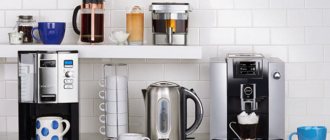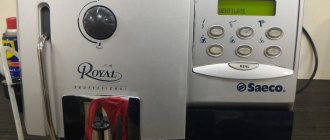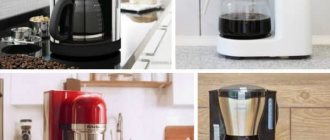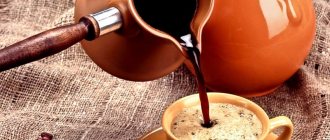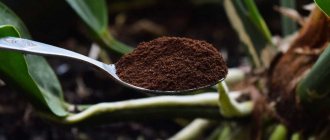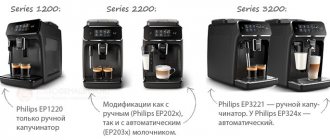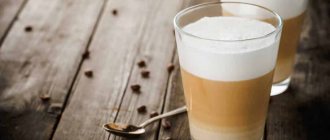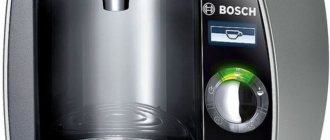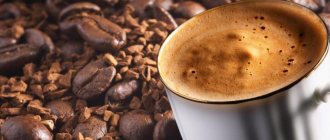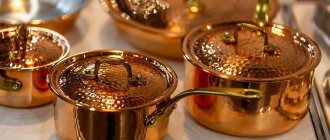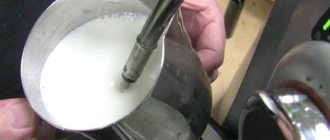Has it ever happened to you that the coffee in a cafe and at work turns out delicious, but at home it’s not so good? Or that the aroma of the ground beans is bright, but the taste comes out flat and bitter? It may be a matter of grinding or brewing, but often the issue is resolved by simply replacing the water. We figured out what water parameters affect the taste and evaluated 12 samples of bottled water from the store. This article is a slightly expanded version of our old coffee water review.
First, a visual experiment. For it you will need fresh coffee, preferably light roast, and two bottles of water: 0.5 liters each of Shishkino Les and BonAqua. Brew two identical cups with different water, cool a little and try what happens. The result is easy to guess: a cup from BonAcqua will be more acidic and bright, while a cup from Shishkino Les will be bitter and without any flavor characteristics.
Why does water change the taste of coffee so much? It's all about the mineral composition. When brewing coffee, water acts as a solvent for the coffee beans. Our task is to “pull out”, dissolve, extract as much flavor and aroma from coffee as possible. For a good taste, the grain must give up 18-22% of its mass, this is the extraction percentage. Water, depending on its hardness, mineral content and other characteristics, will help achieve the desired extraction or hinder it.
Why is it important to use good water for making coffee?
Water for coffee allows you to reveal the rich taste of the drink; it should be soft, free of chlorine compounds and low alkalinity. If you deviate from any indicator, the taste properties of the prepared drink change - it may become bitter or not at all reveal the taste properties inherent in the processing of coffee raw materials.
What kind of water should I pour into coffee to make espresso and other invigorating drink options? Only one that has a low level of hardness, average mineralization and saturation with potassium salts. Natural water from mineral and mountain springs meets high safety requirements. This coffee brewing water goes through a multi-stage filtration system through a network of natural filters.
Water for coffee must be of natural origin, its environmental safety standards must be high. The presence of foreign impurities and excess calcium levels will lead to the formation of scale in the coffee machine. Water with high mineralization and hardness during preparation captures ions that are formed as a result of the dissolution of a portion of coffee in a cup. As a result, all the active substances inherent in coffee beans by nature simply will not reach the taste buds.
Features and specifics of coffee
Coffee is one of the most popular drinks, maintaining its popularity for hundreds of years. Various preparation technologies have been developed, and certain types of grains are used. One of the main advantages is the presence of a large amount of caffeine, which increases energy, performance, and tones the body.
Expert opinion
Borodina Galina Valerievna
Despite the apparent simplicity of preparation, the drink requires compliance with certain rules and a technological sequence of actions.
There are different types of coffee:
- espresso;
- ristretto;
- Americano;
- cappuccino;
- latte;
- raf coffee;
- flat white;
- mocaccino;
- macchiato;
- glasse;
- con panna;
- frappe;
- cold brew;
- Viennese coffee;
- American coffee;
- Turkish coffee;
- Irish coffee;
- Vietnamese coffee, etc.
Such a variety of types is due to some differences in preparation technology, amount of water, additions of milk and sugar, and brewing temperature. The serving size and the density of the drink also differ. Given the wide variety of coffee bean varieties, it’s easy to imagine the number of flavor options.
Water makes up about 95% of the total drink. It is obvious that its quality and composition have a significant impact on the taste and aroma of coffee. Any professional barista pays great attention to such an important ingredient. It is impossible to achieve full compliance with high standards using water from random sources or from a tap. Therefore, it is necessary to have a fairly complete understanding of the current requirements and rules for choosing water.
It is not enough to have knowledge about the quality and composition of the liquid. To get the desired result, it is more important to know where you can get water with the required parameters. In addition to the opportunity to get the highest quality drink, you can increase the service life of coffee machines and other equipment.
Water Chernogolovskaya 19 liters
379 rub.
Why do you drink coffee with a glass of water? General tips for making coffee.
Water after coffee is a long-standing tradition among coffee gourmets. Alternating coffee and water allows you to prolong the aftertaste when drinking a coffee drink. If a tonic drink is served after eating the main meal, a glass of water is served in order to activate the perception of taste buds, for example, after eating dishes with added spices and preservatives.
Many people are interested in how to drink coffee with water correctly? If coffee is served as the main drink at the table, then you should alternate between drinking coffee and clean water. This allows you to enhance the taste of the drink.
Why do people drink water after coffee? To prevent drowsiness, the risk of high blood pressure and to maintain oral hygiene. In many establishments, coffee is served to the table along with cool, clean water. A portion of fresh water is drunk before drinking a coffee drink to get rid of the unpleasant aftertaste after eating food. Drinking coffee with water is also beneficial - clean water neutralizes alkaloids and enhances the invigorating effect.
Basic water requirements for coffee machines
The process of water analysis must begin with its appearance - the liquid should be transparent, colorless, and odorless. If you notice unpleasant odors (usually caused by bacteria or sulfates), you will have to think about additional cleaning. It is better to use water with low mineralization - about 150 mg/l, but options with values in the range of 75-250 mg/l are suitable. Other requirements include: absence of chlorine, acidity in the range of 6.5-7.5 (ideally 7), and total alkalinity of about 40 mg/l. As for the calcium hardness of water for a coffee machine, it should not exceed 85 mg/l. In addition, pay attention to the presence of sodium in amounts up to 10-30 mg/l (the use of softeners is allowed to achieve the desired level) and the temperature of the water in the coffee machine, which should be 91-96 degrees - this is exactly what is needed to make delicious coffee. The listed requirements are established by the international association SCAA, and it is they that guide the world's leading baristas when purchasing water for making coffee.
Where to get water for coffee machines
In terms of convenience and economical consumption, it seems most successful to use bottled water for a coffee machine, and distilled water is best. This water for coffee and tea undergoes multi-stage purification to eliminate the presence of any dangerous impurities; accordingly, it provides excellent taste and aroma properties to the drinks, plus it extends the life of the equipment. The owner of the device only needs to figure out how to connect the coffee machine to a bottle of water and change the tank on time by choosing a permanent supplier. Bottled water for a coffee machine is offered in a standard volume of 18.9 liters, and the number of containers can be easily calculated by analyzing consumption over a certain period, for example, a week or a month.
Having figured out what is the best water for a coffee machine, you can view the current offers here to estimate how much consumables will cost and make a final decision.
Why can't you pour boiling water over instant coffee?
On the packaging of instant coffee you can often find a recommendation that when preparing the drink you should use hot water at a temperature of 80-90℃ rather than boiling water. The use of boiling water is undesirable due to the fact that it enhances the taste and smell of artificial components - flavors and sweeteners. This effect is especially felt when cheap instant coffee is prepared in boiling water.
Many consumers consider the step-by-step preparation algorithm optimal for instant coffee: first with one spoon of hot water, in which the dry mixture is ground and dissolved, and only then by adding the required amount of not very hot water.
Choosing bottled water
This product has a stable composition, which can be found by reading the manufacturer's label. When choosing bottled water, they focus on the optimal ratio of minerals, alkali and other components, discussed above. It is noteworthy that in this case the region and source of origin do not play a role. As part of industrial processing, water receives a number of characteristics, including those that are suitable for brewing good coffee.
The range of bottled water can make it difficult for an untrained user to choose. It is important to immediately exclude inappropriate options when studying the label:
- too high mineralization (more than 250 mg/l);
- there are supplements of fluorine, iodine and other trace elements.
Sources of water for coffee
The most common household source is running water. To purify water, filters are used that primarily cope with the retention of mechanical particles and suspensions. It will not be possible to remove chlorine from tap water using this method. In addition, in different regions its mineral composition, the amount of disinfectants and other substances can vary significantly. It is important to understand that preparing coffee in vending machines does not involve boiling water, so there is a risk of infection by various microorganisms that live in water intake systems.
You can achieve the required quality using a reverse osmosis filter. This device forces water through a membrane that does not allow larger particles to pass through. The disadvantage of this option is its high cost. Therefore, you can pay attention to other, more accessible methods.
Choosing water for a coffee shop
When choosing between filtered tap water or purchased water for a coffee shop, you should first focus on the hardness of the tap water. For soft or moderately hard water, it is optimal to use filtration; if the water is hard, then it is wiser to buy water.
Of course, the above arguments make sense only when it is possible, in principle, to provide water supply to the coffee machine.
Caring for your cappuccino maker and milk system
Manual and automatic cappuccino makers must be cleaned immediately after preparing milk drinks or frothing milk foam. The use of special tools is not mandatory.
But, if care is neglected, the remaining milk will remain inside the automatic cappuccino maker, on the heated parts, in the tubes. Even after half an hour it will be more difficult to remove all this and a special preparation will be required. If the machine has an automatic cappuccino maker, it will have to be disassembled and cleaned manually . It is also better to immediately remove the tube, rinse it under water and put it back.
Cleaning an automatic cappuccino maker follows the following principles:
- change the jug of milk to a container of water;
- press milk supply;
- we drive 50 ml of liquid (if you did not hesitate in cleaning);
- if the contamination is serious, a special preparation is added to the water. This operation requires subsequent rinsing with clean water. In machines with tubes for supplying steam and water, they are lowered into water with the product and steam is released. Residues are wiped off with a clean napkin, the tubes are rinsed with clean water;
- if there is a button for washing, then the situation is even simpler. You should press it and the device will start cleaning itself.
Do not leave the milk tank in automatic cappuccino makers for a long time . It's better to put it in the refrigerator. Otherwise, the milk will sour right in the jug and it will be more difficult to wash it.
From the water supply
Of course, the water that comes into our homes must meet sanitary and epidemiological requirements. But even if Vodokanal complies with all standards, tap water will have a bad effect on the operation of the coffee machine. As it passes through the water supply network, it becomes contaminated with sand, dust, rust. In addition, it contains chlorine, as well as alkaline salts of magnesium and calcium. If your machine is connected to a water supply, install a filter on the pipes and descale the coffee machine every month.
